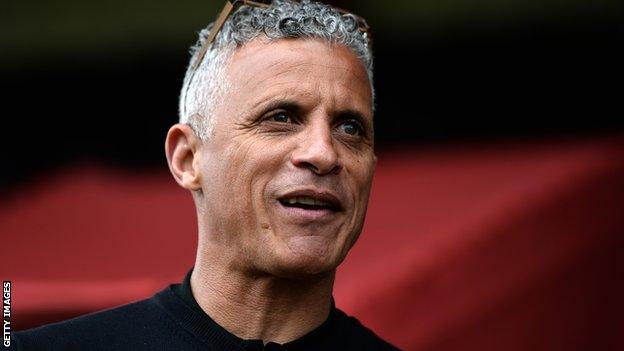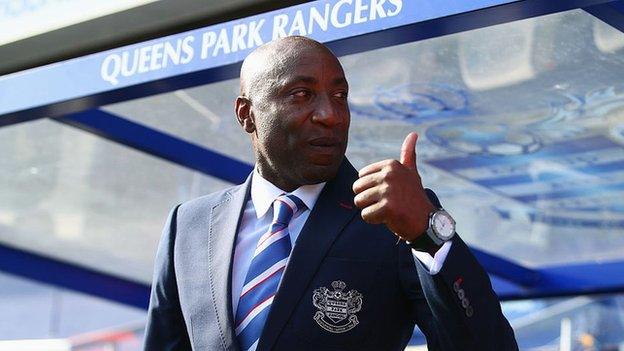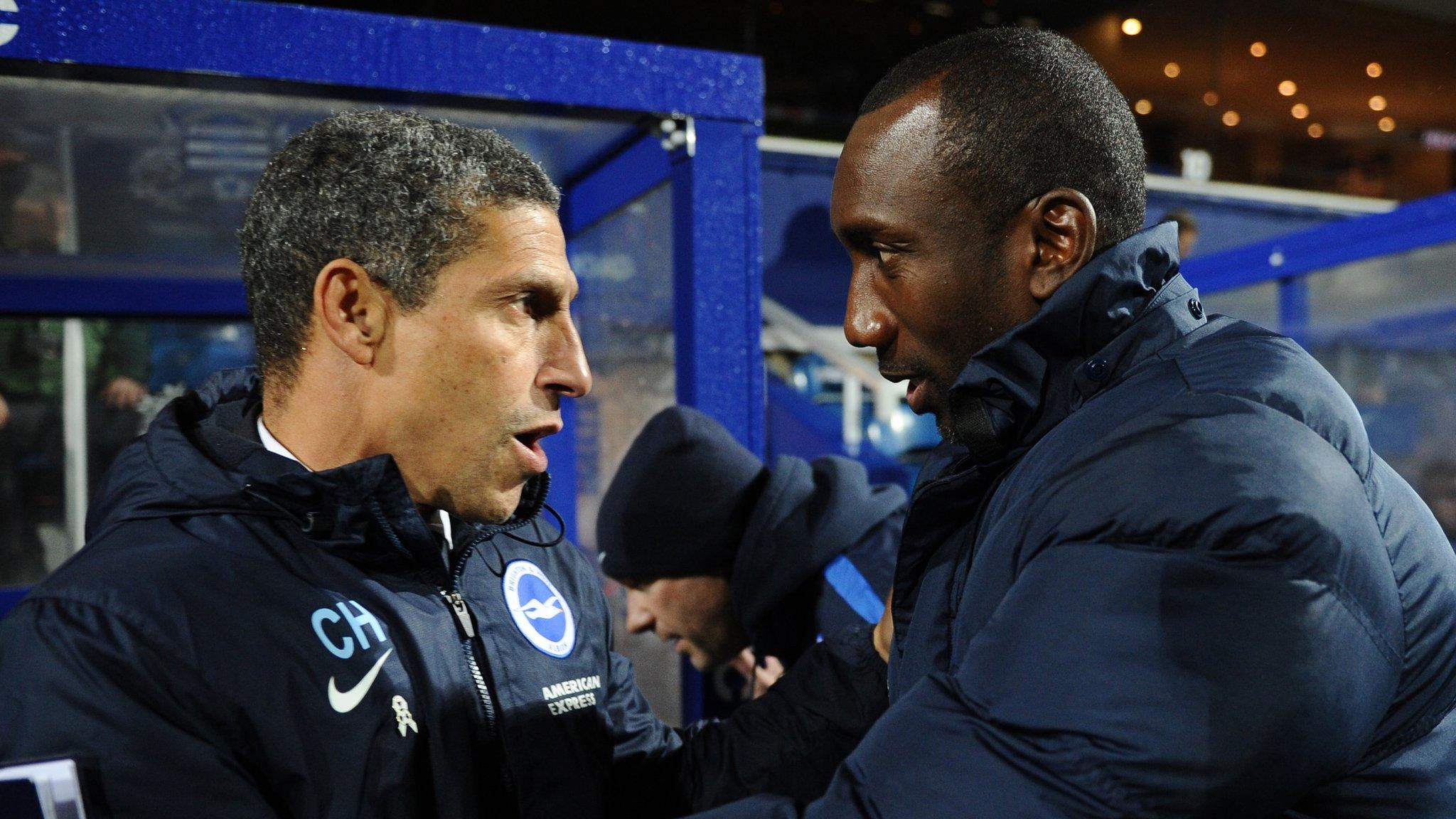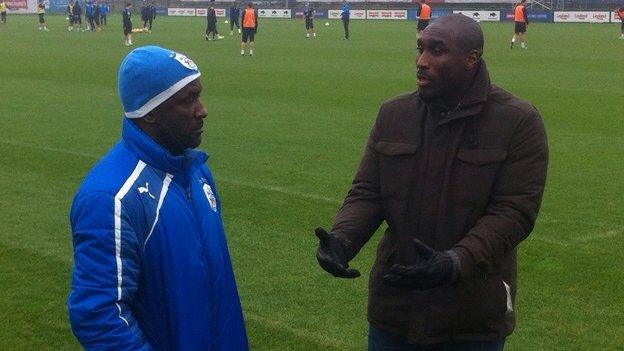Rooney Rule: Lord Ouseley says clubs should face 'sanctions' to end discrimination
- Published

Keith Curle is one of two BAME managers in the top four divisions of English football
English Football League clubs should face sanctions if they do not agree to interview black, Asian and minority ethnic (BAME) candidates for coaching jobs, says the chair of Kick It Out.
Lord Herman Ouseley praised an EFL pilot of the 'Rooney Rule' at academy level, but said representation of BAME people remains "shameful".
Eleven academy jobs were given to BAME candidates last season.
Ouseley believes the whole professional game needs "root-and-branch reform".
All 72 EFL clubs signed up to the 'Rooney Rule' pilot, which means they must include at least one black or minority ethnic candidate on the interview shortlist for an academy post if such an application is received.
Ten clubs also voluntarily chose to extend that to first-team roles.
Of those 10, only Birmingham, Chesterfield, Coventry and Wolves changed managers during the 2016-17 season. Those teams made eight managerial changes during the season but Ouseley said there were only two occasions when the rule was put into effect and a BAME coach was interviewed.
Ouseley, who founded anti-discrimination organisation Kick It Out in 1993, said the new rule has started to move football in the right direction - although it "has not yet yielded the results many hoped for".
"The EFL deserves praise for getting this pilot off the ground," he said.
"While it has not as yet yielded the results which many hope it would, it nevertheless took us further than before because some black, Asian and minority ethnic qualified coaches got interviews for academy posts, and 11 actually got jobs, which is better than what has gone before.
"There is a genuine commitment from the EFL to move forward positively, and they require the support and encouragement from everyone who share in seeing the game become more inclusive and better for everyone."
Ouseley said there was still an issue with discrimination against BAME administrators, coaches and managers.
"The EFL is not the only part of football where this exists," he said. "The whole professional game, and significant parts of the grassroots game, require root-and-branch reform.
"For maximum effectiveness, that would have to be backed up by penalties and sanctions for non-compliance because, as the pilot shows, clubs have got away with doing little or nothing to achieve fair outcomes. That position is untenable and unacceptable in 2017."
By the end of last season, the number of BAME managers in the top four divisions of English football had fallen to two - Chris Hughton at Brighton and Hove Albion and Keith Curle at Carlisle.
BAME players account for more than a quarter of professional squads.
Key figures from the 'Rooney Rule' pilot
123 academy jobs were advertised on the EFL website.
The EFL received data relating to 76 of those jobs.
1,497 applications were received for those 76 jobs.
In 170 of the applications, the candidate defined their ethnicity as BAME (11%).
18% of the 1,497 applications led to an interview, increasing to 31% for all BAME applicants, and 52% for the 99 applications made by BAME candidates who were suitably qualified for the role.
11 BAME candidates were appointed to the 76 jobs (14%).

Chris Ramsey is now QPR's technical director after previously managing the side
What next?
The EFL is planning to extend the recruitment code to all clubs next season to try to tackle the under-representation of BAME coaches and managers.
EFL chief executive Shaun Harvey said there would be more support for BAME candidates in the future with their qualifications, CV-writing and interview technique.
But he said the pilot had been "useful" in terms of learning more about "positive action measures".
QPR technical director Chris Ramsey said: "Tokenism is not what anybody wants - we want equal opportunities.
"We want the chance to go into the arena, we want to get through the door. I've been to the arena and I lost my job because things didn't work out football-wise. That's fine, I got a chance.
"If anything, it's about being given the chance to fail. Can I be judged like everybody else? Not even getting through the door is not where Britain should be right now."
- Published10 June 2016

- Published18 January 2015
